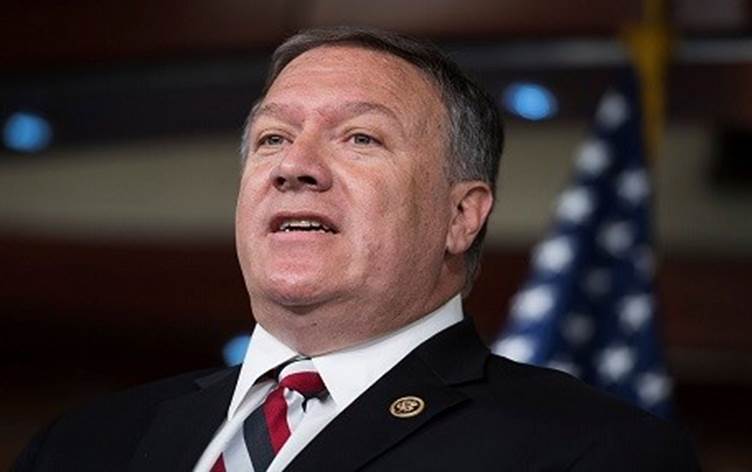ERBIL, Kurdistan Region — The director of the CIA bluntly denied Iranian officials' accusations that the United States was behind deadly protests that spread across the Islamic Republic.
"False. It was the Iranian people, started by them, created by them, continued by them, demanding a better set of living conditions and a break from the theocratic regime that has been with them since 1979," Mike Pompei, the CIA head, told Fox News in an interview on Sunday.
He was responding to an accusation by Iran's Attorney General Mohammad Jafar Montazeri alleging that the United States, Israel, and Saudi Arabia were behind a four-year plan created by a former CIA officer to create unrest in Iran, according to IRNA.
Anti-government protests began on December 28, 2017, in the far east of Iran, then spread across the country reaching the far northwestern provinces of Iranian Kurdistan. At least 21 people have died with more than 1,000 detained.
"The issue with the protests in Iran is very real. Economic conditions in Iran are not good, that's what caused the people to take to the streets. President Trump made very clear that American supports the Iranian people," said Pompeo.
The anti-government demonstrators protested against high unemployment, the rising costs of goods, the announcement of a doubling in fuel prices, freedom of speech suppression, and Iran's regional military intervention, namely Syria.
"Meanwhile the Iranian regime threatens violence," said Pompeo. "Qassem Soleimani [the Quds Force commander] wastes their money in places like Lebanon and Syria and Yemen, trying to foment goodness knows what..."
"That is a backward-looking regime, a theocratic regime that is looking backwards. Instead of a regime that is looking to make the lives of their people better."
Pro-government protests ensued. And on Sunday, Iran declared the protesting was "over."
The Iranian Revolutionary Guards Corps (IRGC), a paramilitary force loyal to the Supreme Leader, said the anti-government protests were over. It blamed the unrest on the United States, Saudi Arabia, Israel, and Iranian opposition parties such as Mujahadeen-e-Khalq (MEK).
The CIA head expects the Iranian people to continue to revolt against President Hassan Rouhani, the IRGC, and the Grand Ayatollah Ali Khamanei.
Protests will continue at a "low level" and they "are not behind us," said Pompeo.
Iran has also accused the Kurdistan Region of inciting the anti-government protests in collaboration with the CIA and the "Barzanis" in Erbil.
KRG Prime Minister Nechirvan Barzani of the KDP emphasized the importance of the stability of Iran for the Kurdistan Region, denying the Iranian claims at a press conference in Sulaimani on Monday.
“It is more like a comedy than reality, even the way it was said. We, in the Kurdistan Region, do not have a hand in these problems with Iran. Iran is an important neighbor," he said.
Mahmoud Sadeqhi, an Iranian MP who attended a closed session of legislature on Sunday with the ministers of intelligence and interior in attendance, wrote on Twitter that no foreign agent was involved in the protests.
"Based on the accounts of the intelligence officials, there has not been any foreign actor involved in the recent unrests," Sadeqhi, an MP representing Tehran, said on Sunday.
Pompeo was asked how the CIA would evaluate a world leader like US President Donald Trump, amid a scathing book by a former advisor claiming the President is unfit for the position.
"The President is engaged, he understands the complexity. He asks really difficult questions of our team at CIA so that we can provide him the information he needs to make good, informed policy decisions. And I've watched him do that," said Pompeo.



Comments
Rudaw moderates all comments submitted on our website. We welcome comments which are relevant to the article and encourage further discussion about the issues that matter to you. We also welcome constructive criticism about Rudaw.
To be approved for publication, however, your comments must meet our community guidelines.
We will not tolerate the following: profanity, threats, personal attacks, vulgarity, abuse (such as sexism, racism, homophobia or xenophobia), or commercial or personal promotion.
Comments that do not meet our guidelines will be rejected. Comments are not edited – they are either approved or rejected.
Post a comment